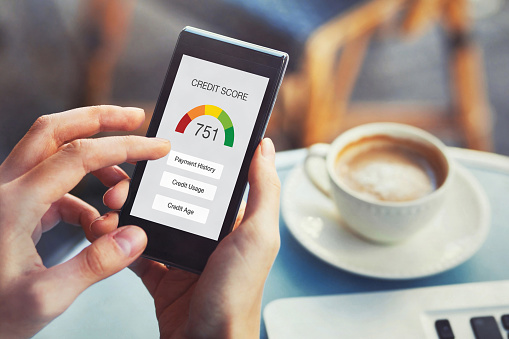Want To Raise Your Credit Score? Tips and Tricks!

Want to get your credit score up? Here's your plan:
1. Pay all bills (at least the minimum payment) on time or at least within 30 days of the due date.
2. Pay all bills on time. No, really.
3. Pick and choose who you open credit with. More is not better in this case.
4. Have some credit though. If you have no credit or very limited credit, your score can't calculate because there is not enough information to go on. Ironic? Maybe.
5. If you want to raise your credit score, it is crucial that you don't use every bit of the credit available to you. Keep some, as much as possible, not used, and just available for emergencies.
6. Think long and hard about a giant car payment. Cars are a depreciating asset, which means they are worth less over time. You may "qualify" for the car of your dreams, but should you? A car payment nearing the size of a mortgage or rent payment is only for very wealthy people. According to Carfax, "the value of a new vehicle drops by about 20% in the first year of ownership. Over the next four years, you can expect your car to lose roughly 15% of its value each year – meaning the average car will be worth just 40% of its purchase price after five years". Is that an investment that makes sense for someone trying to build/improve their credit? Any car loan will affect your credit, and a reasonable payment that you can comfortably pay on or before the due date every month is going to affect your credit score positively.
7. If money is very short one month and you have to choose what to pay within 30 days of the due date: pay housing, car payment, and at least the minimum payment on all credit cards first. Pay utilities and insurance second as they generally don't report to the credit repositories, unless you default on an amount you owe them, such as not paying the last bill when you move. Paying a mortgage payment more than 30 days late will hurt your credit score bigtime. Medical bills can be put off, but don't let them go to collection! Call the doctor and explain you need more time to pay, can you break the bill down into smaller amounts? I have never had a doctor or dentist refuse to do this. Then pay as you have agreed.
8. If you want to raise your credit score, avoid payday lenders and other short-term signature-type loans.
9. If you overdraw your checking account, don't leave it that way long. See if you can set up a small line of credit with your bank that will pull $100 if you overdraw. Don't use it like a credit card though. Pay it back as soon as you get paid next time.
10. Pay an account off and leave it that way. Lenders usually report every 30-45 days to the repositories, and it is NOT necessarily the day after your due date. So I often hear “I pay that account off every month! Why is it showing a balance on my credit report?” It’s because there is always a balance on the account if it is reported before the due date. Pay off all small balances on revolving accounts and leave them paid off to improve your credit score. Revolving accounts are ones that you can pay off and then charge on them again. An exception to this rule is if you have very limited credit and are trying to build a credit profile. Then I would charge something small every month, and then pay it off on or before the due date.
11. When working on raising your credit score, it is important to limit who you let check your credit. More on inquiries below.
12. The benefits of raising your credit score? You can get credit more cheaply and easily. But having a ton of credit is not where you want to go. Being as debt-free as possible makes life less stressful and more manageable when "things" happen (as they always do!). Aim to have a small amount of debt.
That's it! Getting your credit score up doesn't have to be mysterious. Just stick to the plan and you will see your credit scores go up in just a few months.
Are Inquiries Bad?
And What’s the Difference Between a “Hard” Inquiry and a “Soft” Inquiry?

What is an “inquiry” anyway? An inquiry is where a lender checks your credit, or “inquires” on your credit.
Inquiries are impossible to avoid altogether. A potential lender/creditor has to inquire on your credit to see if they should loan you money or extend credit to you.
Lots of inquiries = bad. Why? Because it looks like you either (a) are having trouble getting credit or (b) are in the process of opening lots of accounts that will make it harder to pay back the one that is inquiring.
Inquiries will lose their sting faster than late payments. Because if you are opening an account due to the inquiry, it will show up on your credit soon, and the account reporting has more weight than the inquiry itself.

What if you are buying a car and you sit down with the guy that is going to set up your loan, and he runs your application by three or four different lenders (which is typical, even if you have good credit)? Each one is a “hard” inquiry. But the law changed some years ago, and if you have multiple inquiries from the same type of lender (all car lenders for example), and they are within 30 days of each other, they count as one inquiry.
In the same way, you are not penalized for shopping around for the best rate on a mortgage, which is smart, right? As long as the mortgage lender inquiries are all within 30 days. Most lenders can run a prequalification, which is a "soft" inquiry, to give you an idea of your payment.
I wouldn’t let anyone pull my credit until I was pretty sure I was going with that mortgage lender anyway. You should already know the status of your credit before you start shopping for a mortgage, so you can just tell them “my credit is fairly good” (or whatever is accurate) and they can quote you a rate based on that. Of course, if your score turns out to actually be a lot lower or higher, that may change the rate they quoted you.
What is a “soft” inquiry? These are inquiries from, for example, potential employers and when you check your own credit, and insurance companies. Another example is lenders you already have an account with (they want to see if they want to offer you additional credit, or whether they should cut back on the credit they are offering you because it looks like you’re getting in trouble. In the small print of the stuff you signed when you took out the credit, you agreed to let them do that.) Anytime someone tells you their inquiry won’t affect your credit score, that is a “soft” inquiry.

Can you get credit without having your credit checked? Generally speaking, no, and if you do, you will pay dearly for the credit since they know there is only one reason you don’t want to have your credit pulled. There is no such thing, that I am aware of, as a mortgage with no credit check. Would you loan hundreds of thousands of dollars to someone you had no clue whether they would pay you back? I didn’t think so. Want to improve your credit? Let's go! Click on the links below for more information.
Home | Privacy Policy | Contact | About Me
Copyright © 2022- freecredithq.com All rights reserved